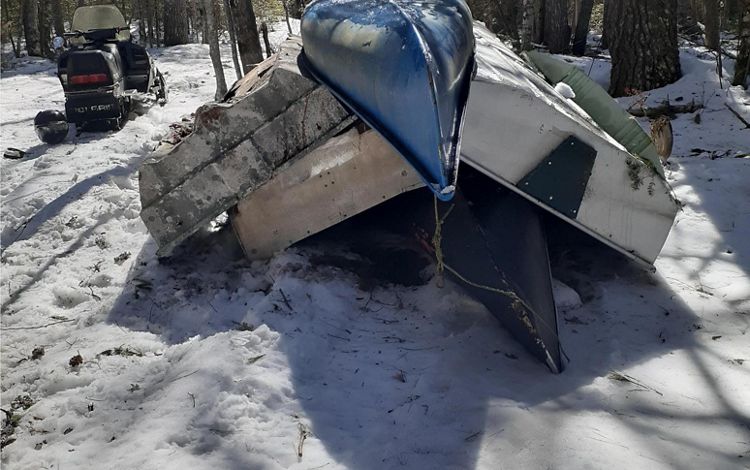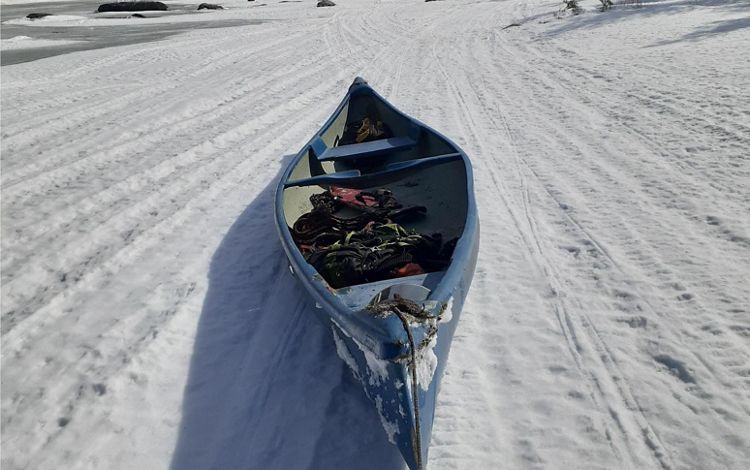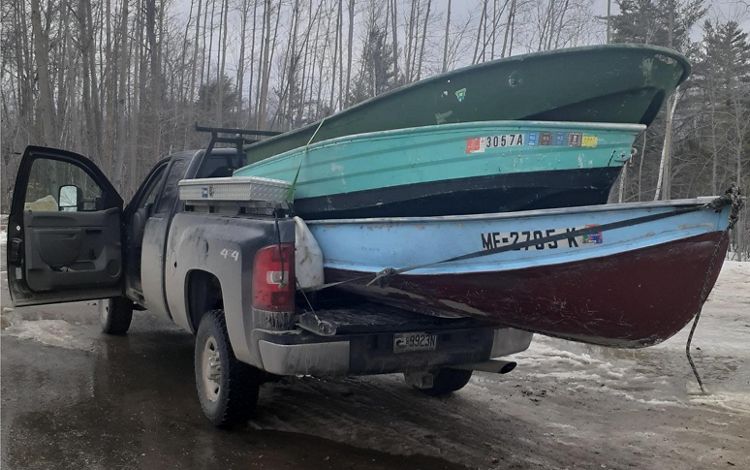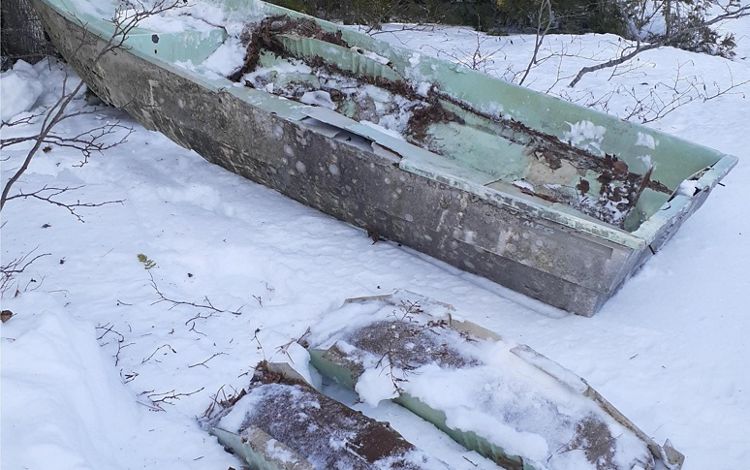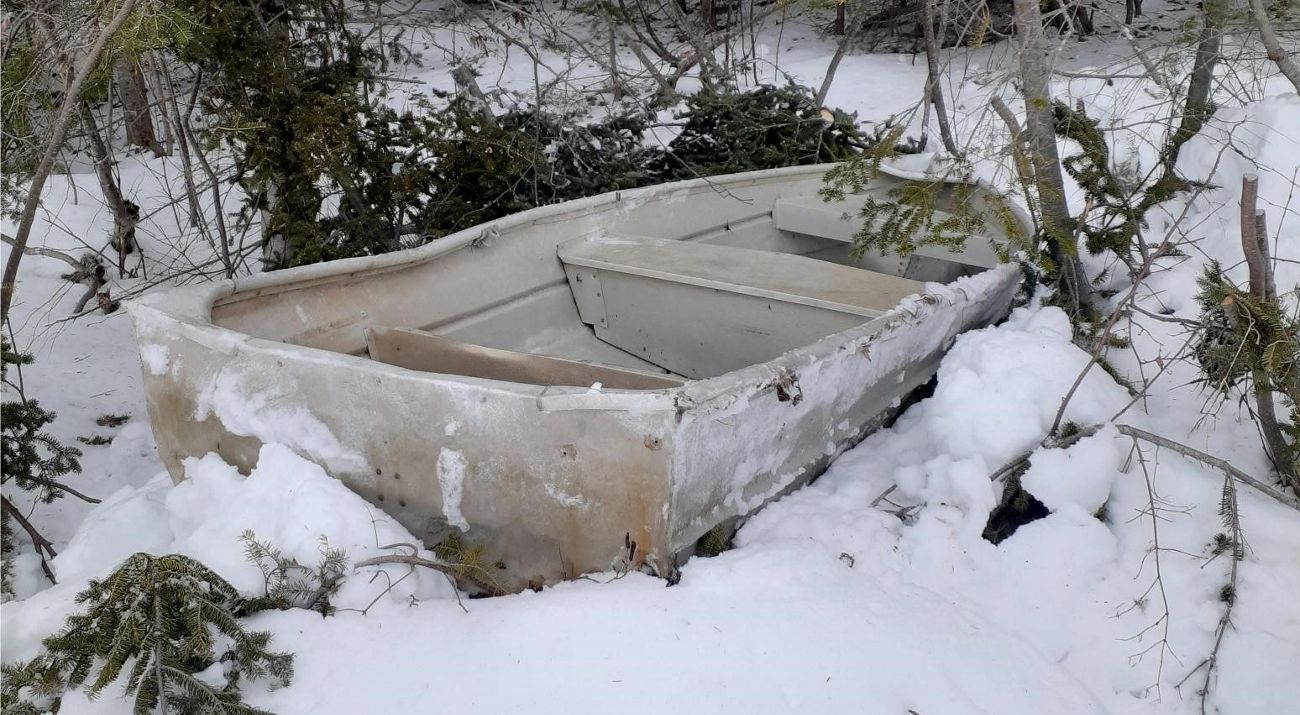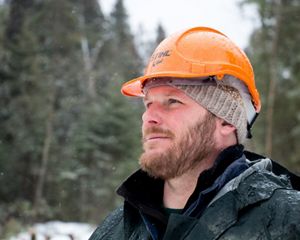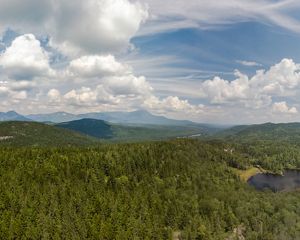Abandoned in the Wilderness
A boat removal program provides relief for remote shorelines.
It was a nice day to be in the woods, with a slight breeze in open areas that helped to keep the worst of the mosquitoes to a manageable level. Robbie Smith enjoyed the two-and-a-half-mile walk down an old woods road that brought him to the shore of a remote pond in a section of the Debsconeag Lakes Wilderness Area north of the Golden Road.
As he began to bushwhack through the dense foliage along the rim of the pond, something caught his eye that led him deeper into the woods. He approached the curved form of the object, now quite far from the water’s edge, which revealed itself as the half-rotted remains of a wood-canvas canoe. But how did it get in a snarl of trees? How long had it been since it was last used?
Smith is The Nature Conservancy’s Northern Maine Stewardship Field Assistant and this canoe was no mystery to him. His responsibilities bring him to many remote ponds, almost all of which share a similar scene.
“It’s been a Maine tradition for people to haul in their boats to these ponds,” says Smith. “They’ll hike in and fish, sometimes over years. But very often the boats never get hauled back out.”
Here at Slaughter Pond, as many as 86 boats have been counted stashed along the shoreline. Some of them haven’t been used for years—many can’t even float anymore. That wood-canvas canoe in the trees may eventually melt into the earth, but today most boats are made from aluminum, fiberglass and plastic. Abandoned by their owners, they are now more like litter on a large scale.
Boat Registration Program
To deal with the problem, TNC developed a program in 2016 designed to identify which boats are unused by their owners so they can be removed. A weather-tight packet was attached to each boat containing a simple and free procedure for registering the craft with TNC and a sticker that must be affixed to the boat to demonstrate that is not abandoned. Now, five years later, 264 boats have been registered. The rest, either so derelict they couldn’t possibly be used again or sitting undisturbed with their untouched registration packets still attached, are ready for removal.
Quote: Robbie Smith
We’re taking out the ones in the roughest shape first.
“We’re taking out the ones in the roughest shape first,” says Smith. “After that, we’ll work at it bit by bit until only the stickered boats are left.”
Most of the work to get them out takes place during the winter, in the same way many boats were brought into these remote locations—pulled behind a snowmobile! If he can’t reach a plowed road, Smith will drag them to a place he knows he can reach in the spring with his truck and collect them for disposal when the snow clears. This past winter, he had help from volunteers from the Maine Marine Trades Association and their program to recycle fiberglass craft.
“They dragged out a couple of boats and a sizeable collection of other trash. It’s a really big help and great that some of this can be recycled,” Smith added.
Alternative Solutions
While TNC’s registration program is designed to identify boats currently in use in the Wilderness Area and the nearby Trout Mountain Preserve, storing new boats is not permitted. Alternatives are being considered, possibly including TNC-owned courtesy canoes made available at some ponds, but plans are still under development.
“Unfortunately, abandoned boats have become such a big issue that it is impacting our ability to care for these reserve lands while providing visitors with a wilderness experience,” explains Nancy Sferra, Director of Land Management for TNC in Maine. “We’re looking for new ways to strike a balance.”
Back at Slaughter Pond, Smith counts almost 30 canoes and aluminum skiffs laying on the ground and leaning against trees, some thick with moss and mold, others dented and broken. As the breeze dies over the pond and the mosquitoes get more aggressive, Smith heads back along the trail toward his vehicle, taking mental note of the derelict boats that he’ll likely try to sled out next winter. It will take time, but eventually this shoreline, and many others like it, will find relief.
